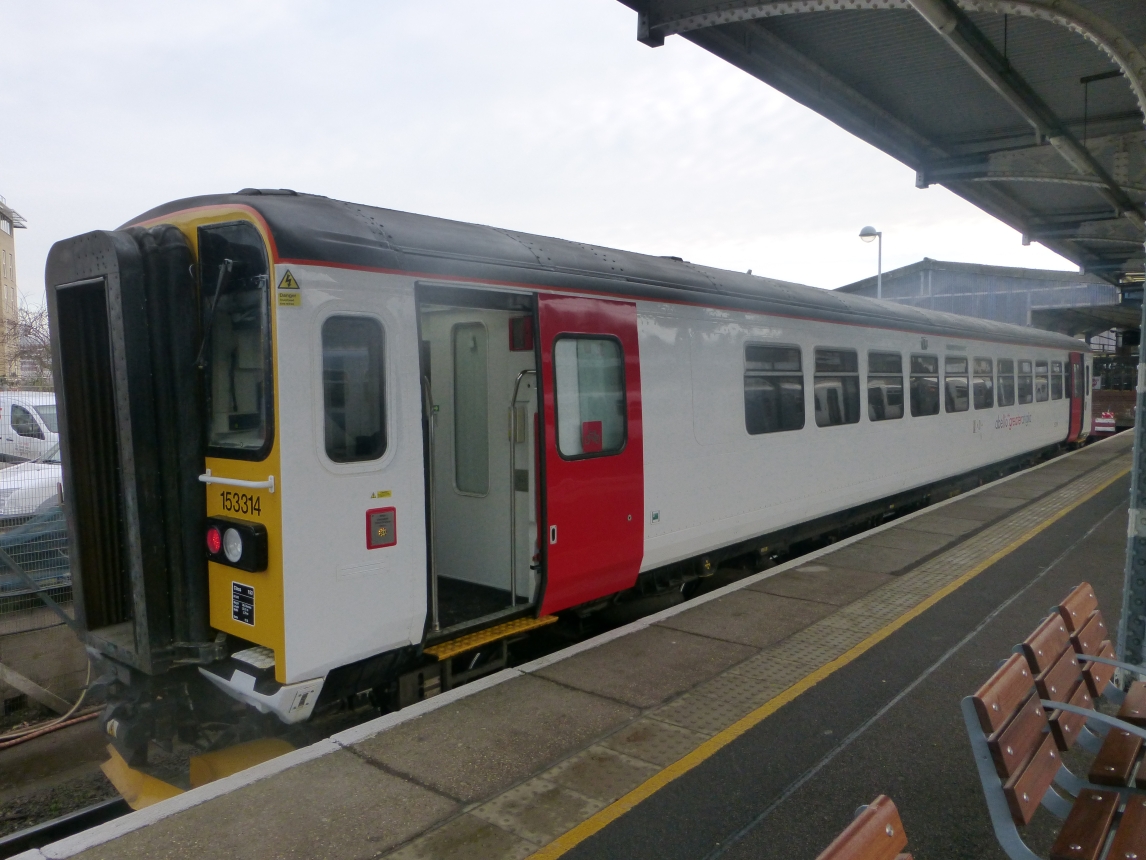Published on: Tuesday, 10 July 2018
Last updated: Tuesday, 10 July 2018
An innovative new train braking system – like ABS in cars – is being fitted to even more of Greater Anglia’s rural trains after it helped to greatly improve reliability last autumn.
Greater Anglia’s award-winning engineering department is fitting the ‘Wheel Slide Protection (WSP)’ system to all of its Class 153 trains which operate on rural services in Norfolk, Suffolk and Essex.
This follows the successful installation on the company’s Class 156 trains, which operate on rural services in Norfolk, Suffolk and Essex, last year.
As a result Greater Anglia was named the best performing train operator in the UK during autumn last year and the project received the Engineering award at the Rail Industry Innovation Awards.
Passengers on rural branch lines suffered less disruption due to ‘leaves on the line’ with a 4% improvement in the punctuality of branch line services, compared to the previous year – despite leaves falling at a faster rate.
Greater Anglia’s Norwich Depot Technical Support Manager, Jason Mills, said, “It’s great that these innovative brakes are being rolled out to our Class 153 trains as it means the entire rural fleet will be more reliable this autumn, improving performance and our passengers’ experience while we await the roll out of new trains from 2019.”
Branch lines suffer more with slippery rails during Autumn as they operate through countryside, nature reserves and areas of outstanding natural beauty, where there is naturally much more vegetation.
Falling leaves create mulch that sticks to the track and gets compressed and hardened by train wheels into a Teflon-like layer. This makes the track as slippery as black ice, so train wheels lose grip and in some cases become damaged.
Wheel Slide Protection is a braking system like ABS on a car which uses technology installed on the train to judge whether its wheels are slowing evenly when the train brakes. When the wheels do not brake evenly this can cause damage to the wheel, known as a ‘wheel flat’.
Wheel flats must be removed on a wheel lathe, which returns the train wheel to a perfect circle again. This can involve the train being out of service for up to a week.
If several trains suffer from wheel flats at the same time, which can occur in adverse weather conditions particularly during the Autumn, this can lead to disruption to passengers through a shortage of trains meaning that some services are cancelled or run with fewer carriages than planned.
Greater Anglia hopes that by installing WSP on its five Class 153 trains (it is already installed on other types of train in its fleet), the number of rural services cancelled due to wheel flats will be reduced even further.
The work is being done in partnership with the train owners, Porterbrook, and the system’s designers, SNC-Lavalin, KBRS and Loram UK Ltd.
Porterbrook’s Fleet Services Director, Neil Foster, said, “We are delighted to be working with Greater Anglia to deliver this important industry upgrade. This WSP technology will reduce delays and engineering downtime, as well as improve over-all fleet performance. This is another example of Porterbrook innovation offering tangible cost and operating benefits to our customers.”



